Economic woes to mark parliament session
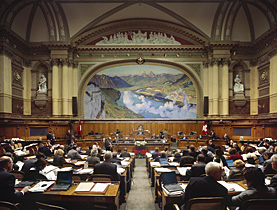
The financial and economic crises cast a shadow over parliament's three-week spring session that opened on Monday.
Politicians will not only discuss policy for the country’s largest bank, UBS, and banking secrecy but the two chambers are also set to decide on the government’s proposed stimulus package to stabilise the economy.
The handing over of confidential client data by UBS to the United States justice authorities has prompted a public debate over the past two weeks and is likely to trigger lively debates in parliament.
Both the rightwing Swiss People’s Party and the Greens have been pushing for an urgent debate on banking secrecy and the future of Switzerland as a financial centre.
Numerous parliamentarians launched their own initiatives on the issue and the wording of the interventions is telling.
“Complicity of UBS in tax fraud in the US?” asks Hildegard Fässler of the centre-left Social Democrats, while People’s Party representative Oskar Freysinger wonders whether “UBS is kidding parliament?”
Others simply call for a close look at the operations of the banking regulatory authorities.
Building projects
High on the agenda of parliament is a package of measures worth SFr700 million ($597 million) to support the slowing economy.
The government’s second stimulus programme focuses on infrastructure projects of rail and road transport.
A major share is also earmarked for environment and energy, regional development and research as well as for the renovation of state-owned buildings.
Presenting the plan in February, Economics Minister Doris Leuthard said the government wanted to allow companies to extend the length of time by which employers could impose shorter working weeks from 12 to 18 months.
The cabinet also announced plans to extend the scope of the State Export Risk Insurance to protect the country’s key business sector from lack of liquidity.
The measures are aimed at countering a drop in orders and a dramatic rise in unemployment, which currently stands at a two-year high of 3.3 per cent.
In addition, the government has also proposed tax breaks for families and steps to contain the impact of fiscal drag – causing an automatic rise in tax revenues.
Last November the cabinet released SFr980 million to boost private investment and prevent job cuts.

More
House of Representatives
Critics
Political parties have criticised the government over the latest SFr700 million package.
The centre-left has argued the plan was insufficient and lacked a clear focus. The Greens called for measures to encourage sustainable growth, while the trade unions demanded public spending to the tune of up to SFr5 billion to support the stricken economy.
The People’s Party has come out against additional public expenditure. Instead they called for tax cuts, notably the levy on CO2 emissions.
For their part, the two other main parties, the centre-right Radicals and Christian Democrats, have welcomed the package.
swissinfo, Andrea Tognina and Urs Geiser

More
Senate
Parliament will also begin discussions on an initiative to ban the construction of minarets in Switzerland.
The rightwing Swiss People’s Party and the ultra-conservative Federal Democratic Union collected enough signatures to force a nationwide vote.
Opponents argue the initiative violates human rights and the legal tenet that all are equal before the law.
The initiative, which is unlikely to win a majority in parliament, has prompted concern by the Muslim community and international organisations.
The Senate is due to discuss a proposal granting the Swiss Abroad a parliamentary seat in parliament.
The proposal won a majority in the House of Representatives, but the senators are unlikely to fall in line.
However, the Senate is expected to enshrine in law the funding of institutions representing the interests of Swiss expatriates, including the Swiss Review magazine.
The House has already agreed the proposal, which also includes financial support for expatriates in emergency situations.

In compliance with the JTI standards
More: SWI swissinfo.ch certified by the Journalism Trust Initiative

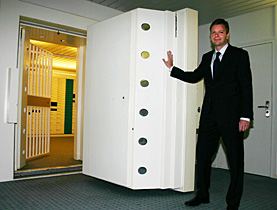
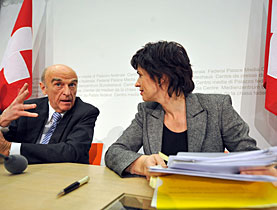
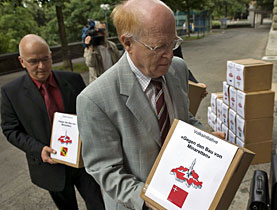
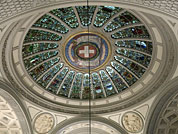
You can find an overview of ongoing debates with our journalists here. Please join us!
If you want to start a conversation about a topic raised in this article or want to report factual errors, email us at english@swissinfo.ch.